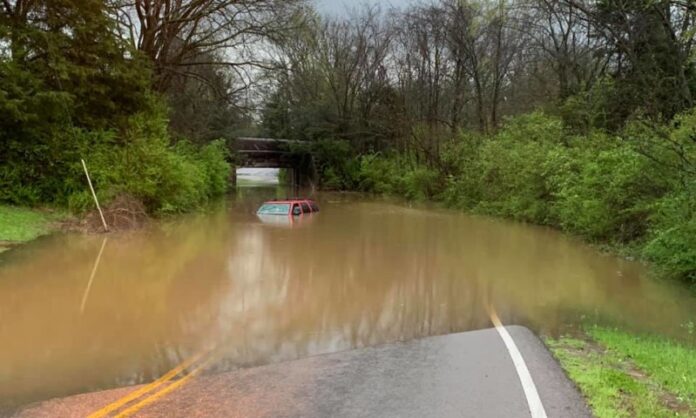
Williamson County and other areas of middle Tennessee are experiencing severe flooding. If portions of your home, community or workplace flooded, here are important things to remember from the CDC and American Red Cross:
- Avoid driving through flooded areas and standing water. As little as six inches of water can cause you to lose control of your vehicle.
- Do not drink flood water, or use it to wash dishes, brush teeth, or wash/prepare food. Drink clean, safe water.
- If you evacuated, return to your home only after local authorities have said it is safe to do so.
- Keep children and pets away from hazardous sites and floodwater.
- Listen for boil water advisories. Local authorities will let you know if your water is safe for drinking and bathing. During a water advisory, use only bottled, boiled, or treated water for drinking, cooking, etc.
- When in doubt, throw it out! Throw away any food and bottled water that comes/may have come into contact with floodwater.
- Prevent carbon monoxide (CO) poisoning. Use generators at least 20 feet from any doors, windows, or vents. If you use a pressure washer, be sure to keep the engine outdoors and 20 feet from windows, doors, or vents as well. Never run your car or truck inside a garage that is attached to a house even with the garage door open.
- The initial damage caused by a flood is not the only risk. Standing floodwater can also spread infectious diseases, bring chemical hazards, and cause injuries.
- After you return home, if you find that your home was flooded, practice safe cleaning. Remove and throw out drywall and insulation that was contaminated with floodwater or sewage. Throw out items that cannot be washed and cleaned with a bleach solution: mattresses, pillows, carpeting, carpet padding, and stuffed toys. Homeowners may want to temporarily store items outside of the home until insurance claims can be filed. See recommendations by the Federal Emergency Management Agency (FEMA). Clean walls, hard-surfaced floors, and other household surfaces with soap and water and disinfect with a solution of one cup of bleach to five gallons of water.
- Be careful when moving furnishings or debris, because they may be waterlogged and heavier.
- Beware of snakes, insects and other animals that may be in or around your home.
- If power lines are down outside your home, do not step in puddles or standing water. Report them immediately to the power company.
- If any gas or electrical appliances were flooded, don’t use them until they have been checked for safety.
- Pump out flooded basements gradually (about one-third of the water per day) to avoid structural damage. If the water is pumped out completely in a short period of time, pressure from water-saturated soil on the outside could cause basement walls to collapse
- Take pictures of home damage, both of the buildings and its contents, for insurance purposes.
















